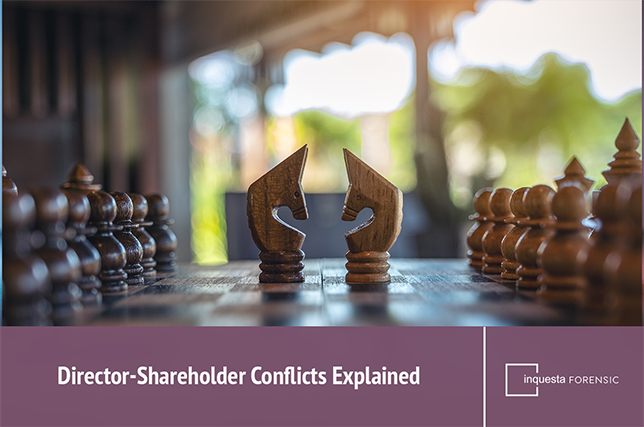A breach of contract can arise from the failure for one party to fulfil their side of a particular agreement. Should this occur, the party on the receiving end of the breach may suffer losses as a result and wish to recoup this money through litigation.
For this course of action to be successful, the responsibility lies with the claimant to prove that the alleged damages occur, and set out their case that there is absolutely no doubt around the validity of their argument. Seeking the assistance of a specialist forensic accountant can be crucial for both of these requirements.
Understanding exactly how to prove damages in breach of contract cases is vital, as being able to adequately quantify the loss you incurred is necessary if you wish to succeed. If you are ever unsure, it is a good idea to look for expert guidance at your earliest opportunity.
What Damages Can I Claim for Breach of Contract?
If you file a compensation claim for losses caused through no fault of your own/by another party, any money awarded is referred to as damages. In the UK, when it comes to a breach of contract, unlike the United States, there are only two different types of damages; special damages and general damages.

Getting to grips with the types of losses you can claim for is the first important part of understanding how to prove damages in breach of contract cases, so it is essential that you are aware of absolutely everything you could be eligible for.
General Damages
General damages will be awarded to directly compensate and cover losses incurred by the claimant as a result of a breach of contract by the other party. They are the most common type of damages likely to be awarded in a breach of contract case.
For example, if a restaurant hires a contractor to deliver new furniture and fails to deliver upon their contract, the restaurant could be forced to take matters into their own hands and, out of pocket, purchase furniture on short notice at a huge additional cost.
In this situation the business owner would be within their rights to ask the court to award general damages that cover the cost of purchasing the initial undelivered items, and if the situation dictates, the price of finishing the job the contractor was initially hired to undertake.
Special Damages
The awarding of special damages is a means for claimants to cover any losses that were incurred as a result of the breach of contract, but were not directly covered in the contract itself.
These extraordinary circumstances often boil down to expenses or revenue losses incurred as a result of the breach of contract. For example, if a restaurant pays to have all new fridges fitted by a certain date, has the old fridges removed to make space for the new models, and the company tasked with supplying said new equipment doesn’t show, then the restaurant may need to either take additional measures, likely at great expense, or more likely be forced to close for a time until the late delivery arrives.
In this scenario the company who signed the contract to make the delivery by a certain date could be expected to pay for:
- Any necessary expenses — for example unforeseen equipment rental on short notice.
- Lost revenue as a result of the breach of contract (likely if the business was directly forced to shut down or limit its operation)
- Reputation damage can also be covered under special damages.
- Future income may be affected due to the breach, and this can be taken into account when damages are calculated.
When adjudicating on special damages, the court will be forced to establish whether the damages stem directly from the breach of contract, and whether the damages could be seen as a predictable risk on the part of the claimant.
Can You Get Punitive Damages for Breach of Contract?
In the UK, for breach of contract it is not possible to get punitive damages. Any and all compensation ordered by the court will be related to actual losses incurred, and by no means to act as a deterrent.
Punitive damages are a common form of damages in other countries, particularly the United States. This form of damages is awarded as a means to punish a party for their wrongdoing, particularly if they have been seen to act consciously maliciously or fraudulently.
A punitive damage award is given in addition to compensatory damages, to deter others from committing similar offences.
How to Calculate Damages for Breach of Contract
Calculating damages for breach of contract generally depends on the specific type of contract that was breached, and what extent the losses were incurred. However, there are generally a few factors to consider when calculating damages, which are:
- Timing
- Losses incurred
- Costs to mitigate loss
- Establish loss of management time
- Were late goods/services refused/deemed not acceptable
What was the Timeframe of the Breach?
Put simply, this would be how long the breach impacted the company, and what particular days the company was inhibited as a result.

Establishing this can be important when attempting to assess losses.
What was the Extent of Financial Losses Incurred?
The calculation of the extent of the financial losses accrued would include a number of factors:
- Liability incurred
- Profits lost
- Payments to third parties
- And more
Were There Costs to Mitigate Losses?
This means that the aggrieved party may have been forced to come up with an alternative method of gaining the goods/service they would have received had the contract been performed properly.
Therefore, any costs could be recovered by the claimant. It is important to note that the claimant must take reasonable steps to, in good faith, reduce any losses in the most financially prudent way.
If a contractor does not deliver on a service, the claimant would be unlikely to be covered for mitigating losses if they spent significantly more than they are deemed to have needed to. This would likely be seen as inadequate mitigation of losses.
Was There a Loss of Management Time?
Loss of management time may occur if a manager for the aggrieved party finds their time dominated by investigating the breach of consequences, attempting to find some alternative, dealing with any possible consequences, etc.
It may be possible for the claimant to attempt to recover wages for time lost, this is most likely if the claimant believes that they would have earned additional revenue on that particular day had the relevant member of staff not had their day unnecessarily dominated by the breach.
Take note that this claim can be difficult to prove appropriate in some cases.
Were Goods/Services not Appropriate or Rejected?
If goods/services were rejected, were not delivered at all, or payment was refused, then the calculation of damages would entail the total market value of the goods/service, and the contractual price. The contractual price would take into account any delivery fees, staff costs, etc.
Additionally, if goods/service were deemed inappropriate due to them being defective or of insufficient quality, the damages to calculate would be an estimate of the value the goods/services delivered, and the value had goods/services been delivered in the quality expected.
How to Prove Breach of Contract
To prove a breach of contract and receive damages in court, in most cases, a claimant must be able to prove the following:

- The contract’s existence – it is vital that a claimant can prove the existence of a legally binding contract.
- The contract was not fulfilled – Terms and conditions of the initial contract must be analysed and contrasted to the service/goods provided.
- Losses were incurred – The claimant must be able to prove that a loss was incurred that requires compensating.
Not every breach can be legally proven to have resulted in a loss, and if the claimant cannot fulfil this in court then no damages will be awarded.
How Forensic Accounting Helps Identify the Quantum of Damages for Breach of Contract
Verifying the quantum of damages for breach of contract is crucial to the chances of success. Using their experience and attention-to-detail, forensic accountants provide an expert opinion on how much has been lost as a result of the defendant’s actions. Their witness statements can be useful when it comes to litigation and swing the case in favour of their client.
In addition to helping their client with understanding how to prove damages in breach of contract cases, a forensic accountant will also be able to assess the validity of the claim, and recommend any additional information that should be provided to support their argument. All of this is designed to give their client the best possible chances of securing a positive outcome.
Why Work with Inquesta When Calculating Damages for Breach of Contract Cases
Inquesta’s team of expert forensic accountants are regularly instructed to assist parties with calculating damages for breach of contract cases. We can help if you are unsure how to prove damages in breach of contract, and will guide you through the entire process from start to finish.
Our expert team is fully qualified to handle all forms of commercial dispute. A breach of contract case can be a difficult time in the life of any business and its owners, therefore it can be vital that you seek specialist assistance to mitigate stress and to ensure the optimal result is achieved.
We understand all of the subtle complexities that can come with a breach of contract case, years of experience providing this service means that we are perfectly placed to get an excellent result.
Contact our team, or request a free consultation today to learn more about what we can do to assist you.
- Your Partner’s Been Convicted: Can They Take Your House? What Section 10a POCA Means For You
- The Essential Role of Forensic Accounting in High Net Worth Divorce
- How to Value a Startup Business: A Guide for UK Entrepreneurs
- Pig Butchering Scams: Guide to Crypto Romance Fraud
- Shareholders’ Disputes: How Business Valuation Helps with Shareholder Dispute Resolution








